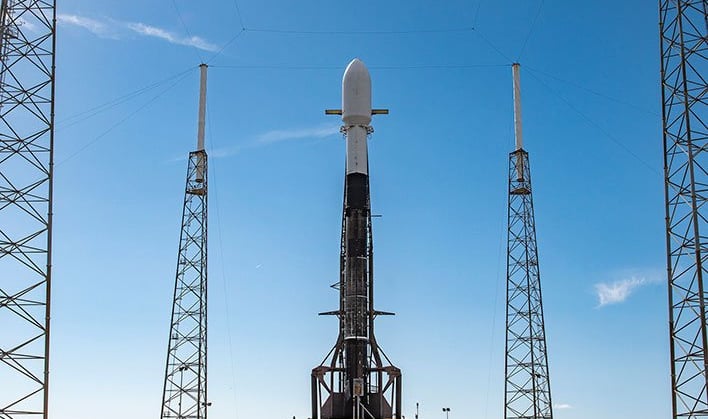Astronomers Now Say A Chinese Rocket Will Crash Into The Moon, Not A SpaceX Falcon Booster
Based on the original evidence presented late last month from Gray, we reported that an out-of-control SpaceX Falcon 9 second stage booster was headed for a collision with the Moon in March. New reports now indicate that the space debris that will impact the Moon is actually a booster from Chinese rocket Chang'e 5-T1 lunar mission (2014-065B). While what the space debris is may have changed, Gray still insists that the object will indeed slam into the Moon on March 4th, within a few kilometers of the predicted spot, and within a few seconds of the predicted time.
In a post on The Virtual Telescope Project 2.0 website, Gianluca Masi announced, "The last month we have been talking about a Falcon 9 upper stage going to hit the Moon; deeper data analysis now suggests that this space debris belongs to the Chang'e 5-T1 mission, launched in 2014."
Gray's change of mind came after receiving an email from Jon Giorgini at the Jet Propulsion Laboratory (JPL). JPL is a federally funded research and development center and NASA field center in the city of La Cañada Flintridge in California. Gray points out in his statement that while JPL is not in the business of tracking space junk, it does keep careful track of a lot of active spacecraft including DSCOVR, or the SpaceX second stage booster that Gray initially thought was going to slam into the Moon.

Looking back, Gray says he should have noticed a few odd things about WE0913A's orbit. But until he had received the email from Giorgini, he had not felt the need to look for any earlier space missions that might account for the object. The preceding candidate launch was the Chang'e 5-T1 mission, which launched on October 23, 2014. Gray notes that it is unclear when the booster from Chang'e would have flown by the Moon, but four days following launch would be a good estimate. This places the booster in a close flyby at about the right time, according to Gray.
Additional evidence has been presented by Jonathon McDowell, who has sent orbital elements for an amateur radio cubesat that received a "ride share" with the booster, and Gray says it's a very close match.
It is still not a certainty what space debris is actually going to impact the Moon on March 4th of this year. Gray says, "In a sense, this remains 'circumstantial' evidence. But I would regard it as fairly convincing evidence. So I am persuaded that the object about to hit the moon on 2022 Mar 4 at 12:25 UTC is actually the Chang'e 5-T1 rocket stage."


